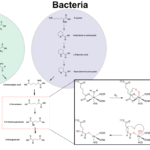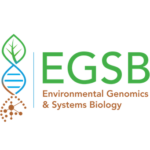Researchers have studied both sides of plant-fungi symbiosis in one of the first cross-kingdom spatially-resolved transcriptomics studies to date.
Report from Second Plant Single-cell Solutions for Energy and the Environment Workshop Available
On April 29, 2021, Berkeley Lab hosted a second workshop to identify the most pressing barriers to wider adoption of single-cell sequencing and omics technologies, and to discuss solutions to remedy those barriers in order to drive discovery. The workshop report is now available for download.
Finding the Missing Step of an Important Molecular Process
Lysine is an important amino acid that must be supplied in our diets, as our bodies can’t produce lysine on their own. Most cereal grains have low levels of lysine, and scientists have worked to breed crops with higher lysine levels.
However, the biochemical processes that break down lysine in plants weren’t fully understood. New Joint BioEnergy Institute (JBEI) research, published in Nature Communications, reveals this last missing step of lysine catabolism.
Reorganized EGSB Structure Includes New Department, New Leadership
Environmental Genomics and Systems Biology (EGSB) Division Director N. Louise Glass has announced several changes to the organization and leadership of the division, effective May 1.
New EGSB Leadership Announced
N. Louise Glass, director of the Environmental Genomics & Systems Biology (EGSB) Division, announced new leadership as of October 1, 2018. Changes were implemented to diversify perspectives and ideas within the management of the Division. Ben Brown and Henrik Scheller have agreed to take on positions as Division co-deputies for science; Tanja Woyke and Chris Mungall will now serve as department heads of Functional Genomics and Molecular Ecosystems Biology, respectively.
Was this page useful?








